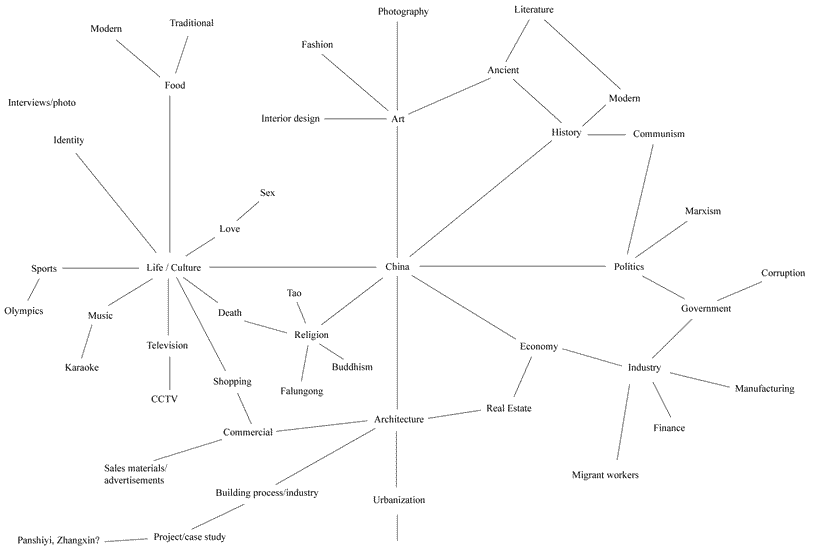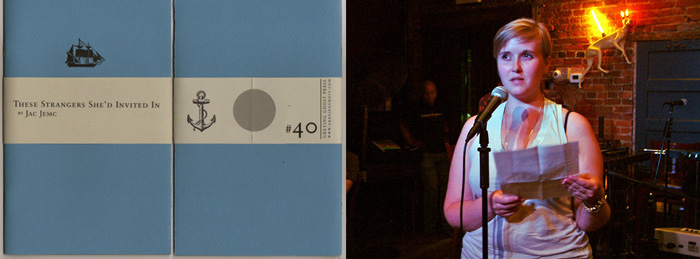In search of lost internet time
This is not an accomplishment: Yesterday, I woke up at 6:30am and went to sleep at 11:30pm, roughly. I spent under an hour on the internet.
This may not seem like a big deal to you, but this is the least amount of time I’ve spent on the internet while being in town (that is, not out of town, e.g. on campus visits, giving readings, or – dare I say it? – vacation) in years.
Loving All These Thieves
 This week I noticed a correspondence between the opening sentence to Great Expectations and the opening of Lolita. I’m interested in the idea of Nabokov stealing from Dickens, a writer he admired and about whom he lectured at Cornell.
This week I noticed a correspondence between the opening sentence to Great Expectations and the opening of Lolita. I’m interested in the idea of Nabokov stealing from Dickens, a writer he admired and about whom he lectured at Cornell.
Here is the opening of Great Expectations:
“My father’s family name being Pirrip, and my Christian name Philip, my infant tongue could make of both names nothing longer or more explicit than Pip. So, I called myself Pip, and came to be called Pip.”
 Here is the opening to Lolita:
Here is the opening to Lolita:
“Lolita, light of my life, fire of my loins. My sin, my soul. Lo-lee-ta: the tip of the tongue taking a trip of three steps down the palate to tap, at three, on the teeth. Lo. Lee. Ta.
“She was Lo, plain Lo, in the morning, standing four feet ten in one sock. She was Lola in slacks. She was Dolly at school. She was Dolores on the dotted line. But in my arms she was always Lolita.”
Note the correspondence between the two openings in terms of wordplay, the repetition of the consonant sound (p- and l-), READ MORE >
THIS THURSDAY, at 9 PM Eastern, we’ll be hosting the 12th edition of our Live Giants online reading series, featuring live offerings by the inimitable Matthew Rohrer, Noelle Kocot, & Anthony McCann, each in support of their new books from Wave, as always right here on the site. Don’t miss it! RSVP here.
memoir bully, memoir befriend!
On memoir, Fran Lebowitz says that if your life were all that interesting, someone else would write a book about it.
In basic agreement, Lorrie Moore replies to Lebowitz:
And, among several gleaming shreds, this analogy of the memoir to:
Are you coming into the house of narrative through the back door because the back door is where the money is?
or…
People are telling us their personal stories and speaking to us of their private lives and even if the structure is rickety and the prose has, to borrow Dick Cavett’s phrase, “all the sparkle of a second mortgage,” we are going to hang in there because it is true.
You can already see Moore’s reluctant (real at all–I dunno) respect (attack?) of/for the form. A funny thing NYRB chose her to review memoirs, but possibly they knew exactly what they were doing. Dinty Moore responds to Moore:
A Tale of Two Jennifers

Jennifer Egan had a pretty great week last week. She won the Pulitzer for her novel The Goon Squad and the news broke that HBO optioned her work for a television series. Then she did an interview with the Wall Street Journal, an interview I read and thoroughly enjoyed. She talks about winning the Pulitzer, fielding the usual questions one might get about how it feels to receive such recognition, how she found out (at a restaurant as she was sitting down), and a little about the work itself. Because she is a woman who writes, and does so prominently, Egan was asked about gender and how male and female writers come off in the press. The exchange looked like this:
Q. Over the past year, there’s been a debate about female and male writers and how they come off in the press. Franzen made clear that “Freedom” was going to be important, while others say that Allegra Goodman was too quiet about “The Cookbook Collector.” Do you think female writers have to start proclaiming, “OK, my book is going to be the book of the century”?
A. Anyone can say anything, that’s easy. My focus is less on the need for women to trumpet their own achievements than to shoot high and achieve a lot. What I want to see is young, ambitious writers. And there are tons of them. Look at “The Tiger’s Wife.” There was that scandal with the Harvard student who was found to have plagiarized. But she had plagiarized very derivative, banal stuff. This is your big first move? These are your models? I’m not saying you should say you’ve never done anything good, but I don’t go around saying I’ve written the book of the century. My advice for young female writers would be to shoot high and not cower.
Last Sentences

Last sentences are more difficult to evaluate absent context than first sentences, because first sentences are a handshake, a promise, an invitation, an opening. They are establishers of context. They mean in conversation with what follows them, but not only in conversation with what follows them. Last sentences mean only in conversation with what precedes them. Still, I think it is (or I hope it will be) a useful exercise to look at some last sentences absent context, and see what’s there. I plan to post about this matter again, and at greater length, but for now I want to just offer a selection of last sentences for your edification and mine:
“The widow begs you, therefore, if you ever pass through our village, to be good enough to spend the night in her house as her guest, and when you leave in the morning, to take the santuri with you.” – Nikos Kazantzakis, Zorba the Greek
“These spirits, they’d left her for good the morning that the news was broadcast on the radio that her brother had set his body on fire in the prison yard at dawn, leaving behind no corpse to bury, no trace of himself at all.” – Edwidge Danticat, The Dew Breaker
Some Ort Stuff
http://www.youtube.com/watch?v=sevrTZRAibQ
Great essay about James Frey and his new “art” book from Art in America.
On another, much sadder note, the (total badass) artist and activist Ai Weiwei has been detained by Chinese authorities for “tax evasion, bigamy and spreading indecent images on the internet.” Since early this year the media in China has portrayed him as a “deviant and a plagiarist” which is maybe the most direct thing that can be said of the role of an artist. While it is possible that Ai knew he was going too far by offering the above photo (and many other nudes with many other people) to Chinese authorities with the caption『草泥马挡中央』 a double-entendre meaning both “the central grass mud horse” (in China that alpaca is an internet meme named Cao Ni Ma, which is a pun) and “Fuck your mother, Communist Party Central Committee” (I’m sure they deserved it), you can sign a petition for the release of Ai Weiwei right here, via the Guggenheim. I don’t know if petitions really matter much in dealing with a government that clearly does not believe in freedom of expression and so on (though I do not know if they do much good in my country either), but anyway there you go.
This is Ai’s map for “a fake editorial”:
Vote BULL!
Jarrett Haley, editor of BULL, needs your help:
BULL is now one of five finalists up to win 100K in funding through Dockers’ (Levi’s) “Wear the Pants” Contest. It’s an unprecedented sum for a lit journal, and an unprecedented chance for the literary community to show its strength in numbers.
WE NEED YOUR VOTES—one a day, every day this week. Here’s why you should care about this and take action:
- Your votes are a statement—that reading and writing matter, that journals and small presses are deserving of funding, that stories are important to people and their authors should be compensated.
- The money will go straight to writers. No one’s getting a salary out of this. All funds go towards expanding BULL as a journal and small press. This funding will go into the pocket of artists like you.
- The exposure will bolster the indie lit scene, engaging and informing the public of what’s happening on all these pages, on all these sites. Independent literature is too good to be kept a secret. We want to make more readers in the world, and we’re starting with men.
- This is not a handout, not a Kickstarter campaign, and we’re not asking for a dime. All you have to do is click a button on Facebook. Those clicks alone can create a paying fiction magazine, one with a proven commitment to working closely with writers and building editor/author relationships.
- The opportunity is unprecedented! This is the first time a journal and small press can be founded and well-funded simply by enough people clicking their mouse.
If this is your first time voting, you’ll have to “allow” the voting app and “like” Dockers. There will be boilerplate permission notices, but I assure you it’s legit. Dockers sees only your most basic profile info—what’s already public, what any old stranger can see. They won’t use it for evil and they won’t bombard with you ads. It’s a legitimate contest through a legitimate company.
Dockers is Levi’s, and Levi’s is fucking Levi’s. If ’49ers trusted it during the Gold Rush, so can you today. Do not let skepticism keep you from this opportunity.
A chance like this comes along never. BULL wants to win this with, and for, the literary community. We can’t do it without YOU. Just one click a day and you’ll have done your part. Vote today, and every day, here:
A Conversation With Jac Jemc
Jac Jemc‘s novel, My Only Wife, is forthcoming from Dzanc in 2012, and she is also the author of the just released These Strangers She’d Invited In, a beautiful chapbook published by Greying Ghost Press.
I loved These Strangers She’d Invited In. How did this project come about and what’s really going on in this chapbook? I had so many questions.
The project actually started as a class exercise a few years ago. We were supposed to imitate a classmate’s work and there was this filmmaker guy who kept turning in these character names with a bulleted list of traits. My way of ‘copying’ him was to look up a bunch of names of Russian stage actors and make up details about them. Then I turned the details into stories instead of lists. I made a lot more than are in this chapbook, but when I started looking at them as a whole, these were the ones that made sense as a collection.








